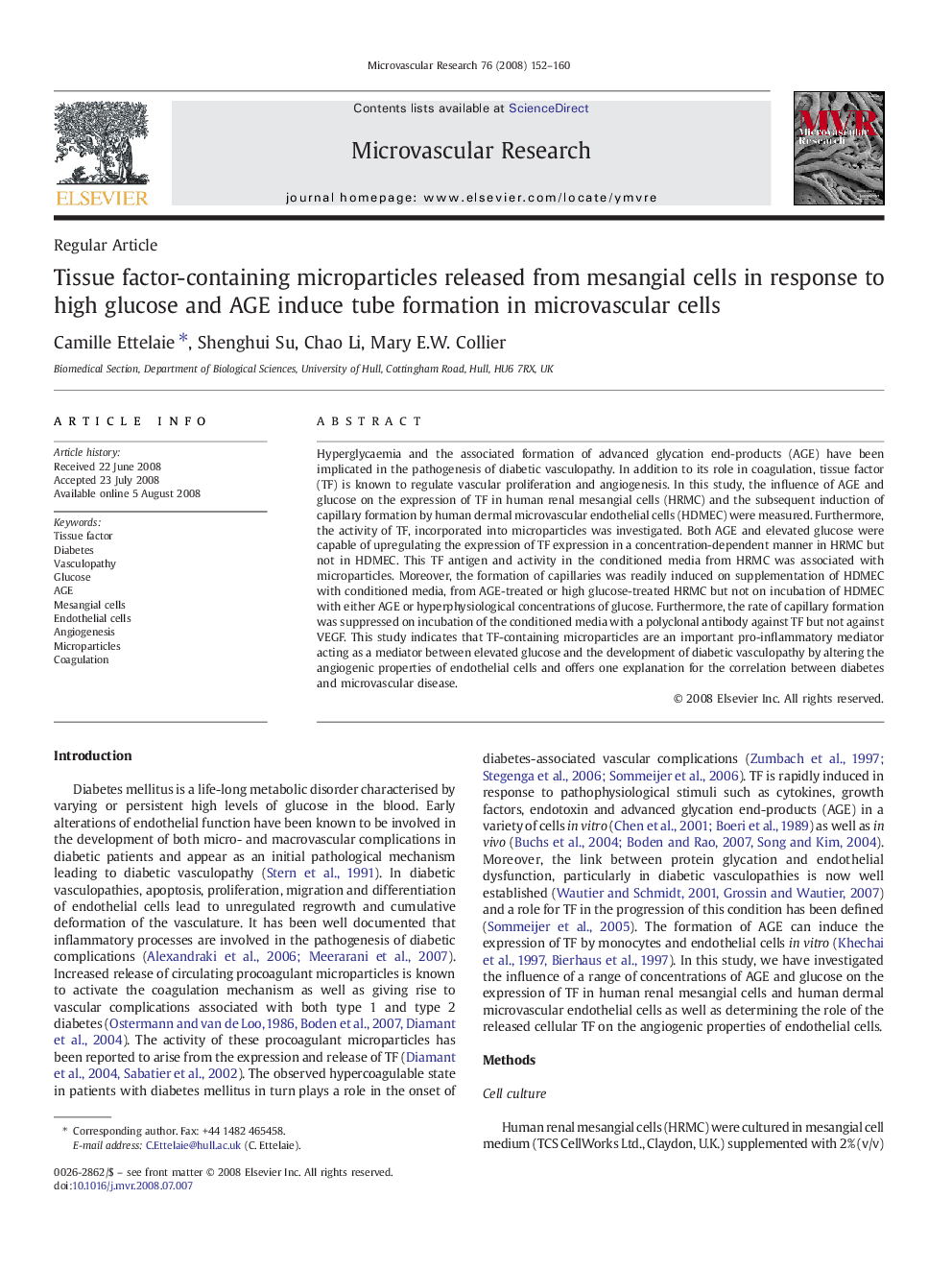| Article ID | Journal | Published Year | Pages | File Type |
|---|---|---|---|---|
| 10827203 | Microvascular Research | 2008 | 9 Pages |
Abstract
Hyperglycaemia and the associated formation of advanced glycation end-products (AGE) have been implicated in the pathogenesis of diabetic vasculopathy. In addition to its role in coagulation, tissue factor (TF) is known to regulate vascular proliferation and angiogenesis. In this study, the influence of AGE and glucose on the expression of TF in human renal mesangial cells (HRMC) and the subsequent induction of capillary formation by human dermal microvascular endothelial cells (HDMEC) were measured. Furthermore, the activity of TF, incorporated into microparticles was investigated. Both AGE and elevated glucose were capable of upregulating the expression of TF expression in a concentration-dependent manner in HRMC but not in HDMEC. This TF antigen and activity in the conditioned media from HRMC was associated with microparticles. Moreover, the formation of capillaries was readily induced on supplementation of HDMEC with conditioned media, from AGE-treated or high glucose-treated HRMC but not on incubation of HDMEC with either AGE or hyperphysiological concentrations of glucose. Furthermore, the rate of capillary formation was suppressed on incubation of the conditioned media with a polyclonal antibody against TF but not against VEGF. This study indicates that TF-containing microparticles are an important pro-inflammatory mediator acting as a mediator between elevated glucose and the development of diabetic vasculopathy by altering the angiogenic properties of endothelial cells and offers one explanation for the correlation between diabetes and microvascular disease.
Keywords
Related Topics
Life Sciences
Biochemistry, Genetics and Molecular Biology
Biochemistry
Authors
Camille Ettelaie, Shenghui Su, Chao Li, Mary E.W. Collier,
